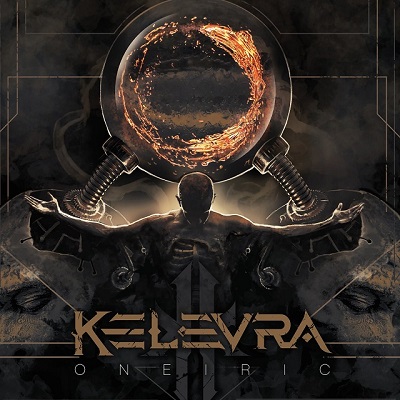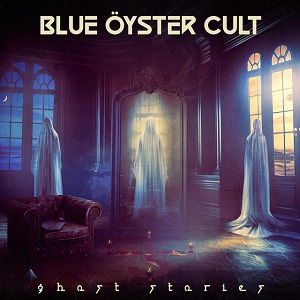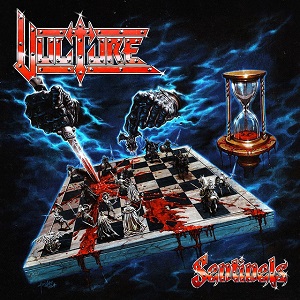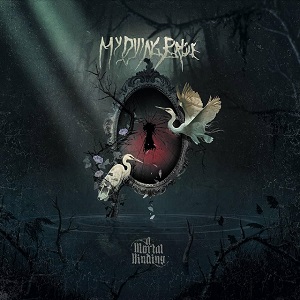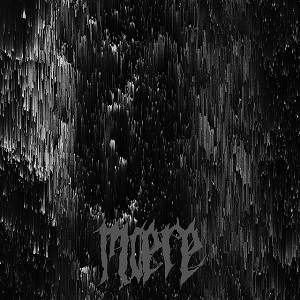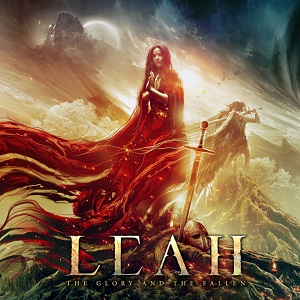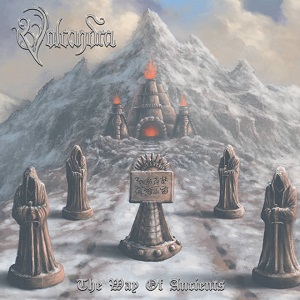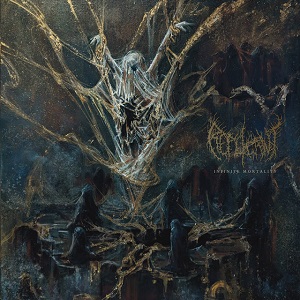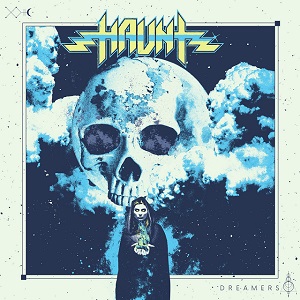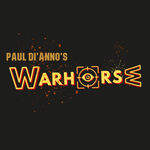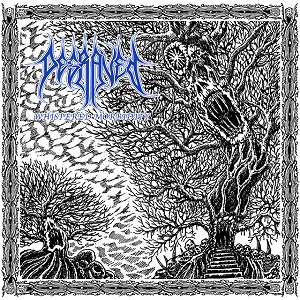SEPTICFLESH - A Brief Clash With The Titans
July 23, 2014, 9 years ago
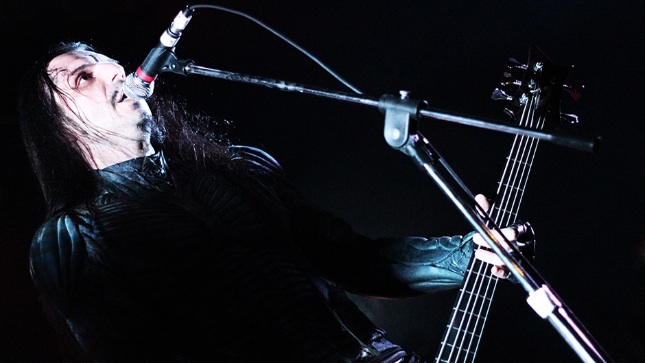
They were born from the blood of gods. Children of the stars, fraught with mortality, their devolution interwoven into the fabric of the cosmos. From Titan they've returned, descanting the knowledge of the heavens, annihilating the binds of the gods with their beautifully orchestrated cacophony. A cry of mankind echoing across a chasm of black... their flesh resurrected by the malignancy of this universe. Forever mortal. Forever misery. Forever Septic.
If there ever was an album to ignite the flame of inspiration, artistic passion, and mind-fucking hallucinatory forays into the cosmos for this scribe, Septicflesh's latest release, Titan, would be that album. It may not happen upon the first listen, perhaps not even the second, but, once it sinks in, you can rest assured that your world will forever be changed; for better or for worse, well, that is up to you...
"We always create difficult albums for the listener," explains guitarist/composer, Christos Antoniou. "We don't create albums that have many hooks and easy listening sections. For us, Titan is a step forward for the band's evolution. Initially, we had concerns about how we could surpass The Great Mass, which was the most successful album leading up to Titan. We had some discussions in our first meetings as a band about which path we would follow with Titan. Our vision was to create something that was totally different, and I think we have managed to do that. We are always trying to experiment and to add new elements to our music. Titan has a distinctive character that is not a copy of what we have done previously."

The word Titan is one that conjures images of power, knowledge, and eminence. Like its namesake, in both cosmology and mythology, Titans are unfathomably colossal; a primeval race of powerful deities, descendants of Gaia (Earth) and Uranus (Sky), that ruled during the legendary Golden Age - immortal giants of incredible strength. With such a potent narrative behind the word, it seems only fitting that the band chose it as the album's underlying theme. But, much time has passed, and there has arisen a new god, FLESHGOD APOCALYPSE. In the years since The Great Mass, Fleshgod has taken symphonic death metal to new heights, capturing the hearts and minds of metalheads the world over, particularly North America. Has the emergence of this newest Titan, and their brethern, affected the way SepticFlesh now approaches their art?
"If we were to follow a certain formula of success to appeal to a specific audience, well, we would lose the essence of true artistry and growth that we strive for in this band," clarifies Christos. "This would be the wrong path for SepticFlesh. When we compose music we do not think about these things; we follow our souls... our instincts. It would be a big mistake to create an album just to make it 'big' in North America. Since communion we have done many tours with big bands; but For North American audiences we are a relatively new band. It seems to be going good here, and we see a bright future for North America. People don't really hear many bands over here with the symphonic elements that we have, where in Europe there are many bands creating this style."

The Romantic-era of classical music, which existed throughout the whole of the 19th century, introduced to the world some of the most important and prolific composers to have ever lived. Names such as Ludwig van Beethoven (who bridged the transitional period between the Classical and Romantic eras), Franz Liszt, Frédéric Chopin, Franz Peter Schubert, and later Richard Wagner, all experimented with darker themes and arrangements previously unheard of within the compositions of their paterfamilias. Fast-forward nigh 200 years, and it is easy to draw comparisons between the expositions of the Romantic-era and the elite of today's symphonic-infused death metal. Christos, having earned his masters degree in composition and orchestration, exudes the class and beauty of his forebears, while maintaining the brutality of his peers.
"For us, the use of orchestration is very important. We have built the majority of the songs on the orchestra template, without actually having to use a full orchestra," states the composer. "When you hire an orchestra, you never know how it will sound because much of it is left up to the orchestrator. Thankfully, with my knowledge of classical composition, I can make demos for the other guys who aren't so familiar with classical music. One thing we stay clear of is using orchestration as an accompaniment or a garnish to impress. We strive to have the brutal parts unite with the symphonic parts as organically as possible. Our use of orchestration is quite different from other bands in the genre who also utilize it, which allows us to be quite unique."

Titan's opening track, 'War In Heaven', is a song where each moment represents an act of war somewhere in the universe, both in the microcosm and in the macrocosm. Wars for ideals, wars for domination, wars for survival. Sky-heaven is an illusion. Lyrically, the album is packed full of similar provocative narrative, as Christos goes on to reveal.
"We have influences from Greek, Sumerian, and Egyptian mythology, and Lovecraft. For Titan, we did not approach this album as a larger concept so to speak, but their are some running themes. Obviously, the title track speaks for itself. 'The Order Of Dracul' which is about Vlad The Impaler, has similarities to 'Prototype', being about mass fear. I think the lyrics are equally as important as the music; we care about themes beyond just that of Satan."
(All photos by Kim Baarda)


